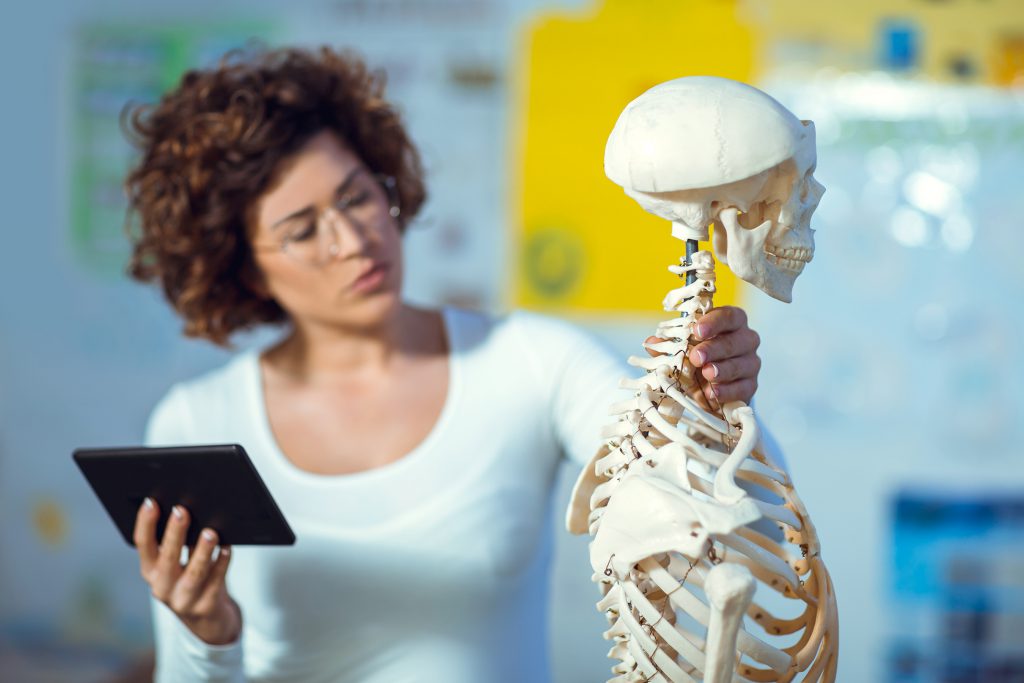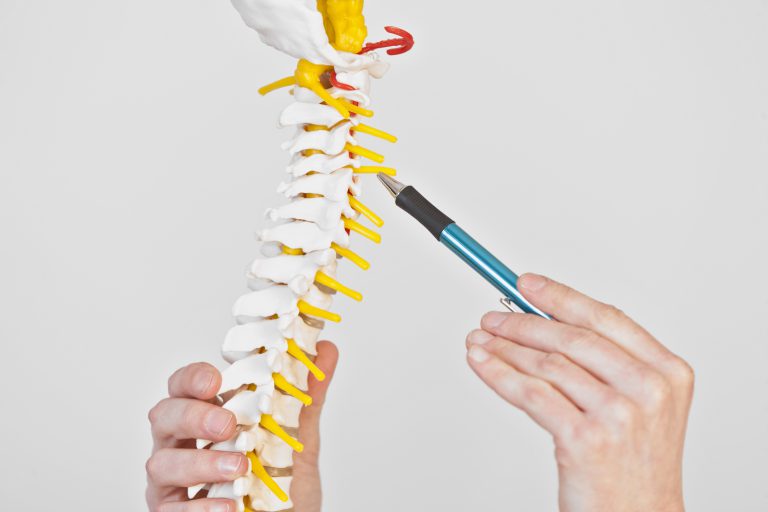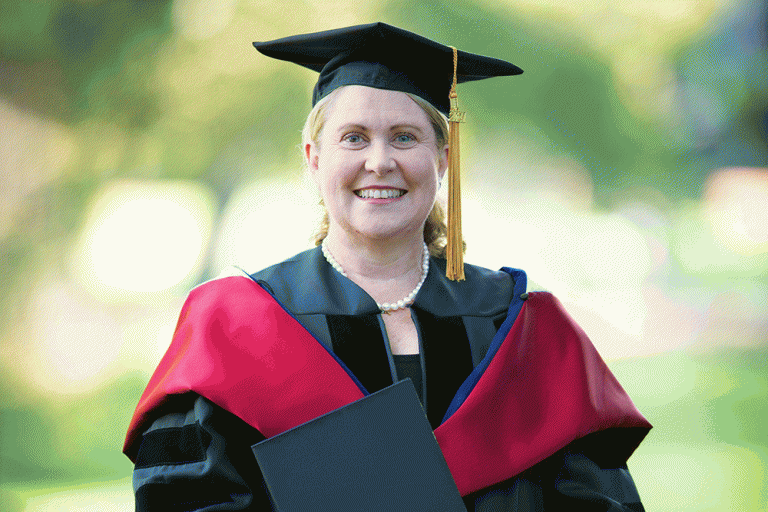It is well understood that there is a need for more high-quality chiropractic research and to this end, the ACA maintains a robust commitment to supporting research and evidence-based practice within the chiropractic profession.
To help guide the Association’s investment in research, the ACA produced the Research Summary and Strategic Research Opportunities (RSSRO) document in 2016. The purpose of the RSSRO document is to provide an overview of the research evidence as it currently stands and to identify areas of opportunity to best inform and direct future research.
In order for the chiropractic profession to utilise emerging research, it is important to translate evidence into practice. High-quality translation of evidence into practice, also known as ‘translational research’, is a unidirectional continuum whereby research findings essentially move from the researcher’s bench to the chiropractic table.[1]
In the last decade, research funding provided by the Association has totalled almost $2 million. This has included parity funding to universities, various initiatives, and scholarships. We encourage the whole profession to take a fresh look at what we do in building the evidence base.
ACORN Project
The Australian Chiropractic Research Network (ACORN) Project was launched in 2014 by the Australian Research Centre in Complementary and Integrative Medicine (ARCCIM) at the University of Technology Sydney under the leadership of Professor Jon Adams.
Proudly funded by the ACA from the beginning, the ACORN Project was the first national, longitudinal and sustainable practice-based research network (PBRN) program focusing on chiropractic worldwide. This research initiative directly involves practitioners and patients from over 1,000 clinics across Australia.
To date, the ACORN PBRN has directly produced 21 publications. More recently, a nationally significant sub-study, CHiRPA, has been established to examine the research interests, perspectives and experiences across the profession with a view to provide guidance for research development and advancement into the future.
Since its inception in 2014, the ACA has proudly provided $444,000 to the ACORN Project.
BACE:C-A Study
The ACA funded research project Back Complaints in the Elders: Chiropractic – Australia (BACE:C-A) is led by Macquarie University postdoctoral research fellow Dr Katie de Luca. The project is an internationally collaborative longitudinal study on low back pain (LBP) in older Australians.
The study will determine the cost, satisfaction and outcomes of chiropractic care provided to older people with LBP. Importantly, it closely aligns to the areas of high research priority outlined by the ACA, which include:
- chiropractic and the Australian healthcare system; and
- the burden of disease and relevance to chiropractic.
The ACA has committed to a total investment of over $400,000 towards the BACE:C-A Study until 2022.
CARL Program
The Chiropractic Academy of Research Leadership (CARL) Program identifies, nurtures, and supports emerging young researchers whose research is relevant to chiropractic. The program’s goal is to create a sustainable research culture and ultimately a greater academic mass in the chiropractic profession by increasing research output and leadership opportunities within this group.
CARL Fellows I (2017-2020) involved 13 emerging chiropractic researchers, including four from Australia who are also ACA members: Drs Mike Swain, Matt Fernandez, Craig Moore and Katie de Luca.
The ACA is proud to be funding Carl Fellows II (2020-2013) which included three ACA academic members from Macquarie University: Drs Aron Downie, Hazel Jenkins and David McNaughton.
The ACA has committed to a total investment of over US$60,000 towards the CARL Program until 2023.
The Giles Medal
The Giles Medal for Research Excellence has been established by the ACA as its most prestigious international award for scientific research. The purpose of the Giles Medal was to establish an international chiropractic research award that acknowledges and recognises researchers with a sustained track record of excellence in scientific research of relevance to the practice of chiropractic.
Recipients of the Giles Medal include:
- Prof Christopher Maher, 2019;
- Prof Charlotte Leboeuf-Yde, 2018;
- Dr John David Cassidy, 2017; and
- Dr Lynton Giles, 2015.
Nominations for the 2021 Giles Medal are now open. A strict nomination protocol and rigorous selection process must be followed. Nominations close 30 April 2021.
PhD & MRes Scholarships
The ACA offers PhD and MRes scholarship funding for students undertaking in a PhD or MRes program at an Australian University. This funding is linked to the Research Training Program (RTP).
For the most recent funding cycle, the ACA welcomed submissions within research domains encompassing diagnosis (including reduction in unnecessary, ineffective or harmful diagnostic procedures); efficacy (including reduction in inappropriate or ineffective therapies); affordability; safety; and knowledge translation and implementation within mainstream clinical care.
Over the last seven years, the ACA has provided PhD scholarships to Drs Craig Moore, Kelvin Murray, Julie Kendall, Samantha Harman, John Petrozzi and Carlo Rinaudo. Additionally, MRes scholarships have been granted to Drs Brad Morgan, Dan Hone and Anika Young.
Since the first scholarships were awarded in late 2014, the ACA has proudly provided just over $500,000 to a total of nine scholarship recipients.
ACERF and the future of research
In addition to the aforementioned projects, the ACA has supported a number of smaller grants over the years. Most recently, the ACA Board provided a research grant to Dr Genevieve Keating to complete a substantive synopsis on the Safer Care Victoria Review findings, as covered in her PhD research.
ACA is also in the process of setting up the Australian Chiropractors Education & Research Fund (ACERF), to facilitate our research initiatives and grants. This public ancillary fund will streamline our strategy and investment into research.
In conjunction with the inception of ACERF and the repurposing of the Chiropractic Journal of Australia into AICE, the ACA is revising its research strategy and undertaking a review of the RSSRO document. Through refining our strategy, the ACA’s commitment to supporting research and evidence-based practice will continue to go from strength to strength.
[1] Rubio, D.M., et al., Defining Translational Research: Implications for Training. Academic medicine: journal of the Association of American Medical Colleges, 2010. 85(3): p. 470-475.



